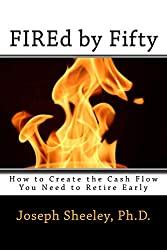
Photo by Andrea Piacquadio on Pexels.com
" data-orig-size="1880,1253" data-image-title="ethnic young woman using laptop while having tasty beverage in modern street cafe" data-orig-file="https://smallivy.files.wordpress.com/2014/11/pexels-photo-3768894.jpeg" data-image-description="" data-image-meta="{"aperture":"0","credit":"","camera":"","caption":"","created_timestamp":"0","copyright":"","focal_length":"0","iso":"0","shutter_speed":"0","title":"","orientation":"0"}" data-medium-file="https://smallivy.files.wordpress.com/2014/11/pexels-photo-3768894.jpeg?w=300" data-permalink="https://smallivy.com/2023/04/05/my-experience-investing-in-a-start-up-company-part-2/pexels-photo-3768894/" alt="" class="wp-image-23197" data-large-file="https://smallivy.files.wordpress.com/2014/11/pexels-photo-3768894.jpeg?w=723" />Photo by Andrea Piacquadio on Pexels.com(This is the fourth post in a series on my experiences investing in a start-up company. See this post for the start of the story.)
After graduate school, right about the time I first started working a regular job, I received notice that Ferris Productions was being sold to a Texas-based company called Gamecom. Looking at the information about Gamecom, this made very little sense. While Ferris Productions was not making money (or at least not making a lot of money), they still seemed to be a viable business. Gamecom was started as a chain of brew pubs in Texas. The brew pubs had failed, leaving the only asset of the company being a single multi-player game at one of the bars. I soon discovered, however, that the valuable asset Gamecom had was that they were a C-Corporation listed on the NASDAQ exchange. By being purchased Ferris Productions could become a C-corporation, meaning that it would trade on a regular exchange and simplify tax filings for shareholders.
(Note, if you click on a link in this post and buy something from Amazon (even if you buy something different from where the link takes you), The Small Investor will receive a small commission from your purchase. This costs you nothing extra and is the way that we at The Small Investor are repaid for our hard work, bringing you this great content. It is a win-win for both of us since it keeps great advice coming to you (for free) and helps put food on the table for us. If you don’t want to buy something from Amazon or buy a book, how about at least telling your friends and family about our website as a great place to learn about investing and personal finance. Thanks!

Check out my latest book on how to supercharge your finances, FIREd by Fifty: How to Create the Cash Flow You Need to Retire Early.
For each share of Ferris Productions, I was to receive several hundred shares of GameCom. The company was then to be renamed Virtra Systems, in keeping with their new product line and identity, and a large share split was to take place. In the end I had a certificate for several hundred shares of Gamecom, which could be traded for about 300,000 shares of Virtra Systems. Doing the math, I discovered that my original 2% of the company had been diluted down to something like 1% of the company, although 1% of Virtra Systems was worth a good deal more than my original buy-in for Ferris Productions, so I had profited from the deal. This leads to another lesson of investing in start-up corporations:
If you don’t have a controlling interest, there is no way to stop your original stake from being diluted.
Again this was not really an issue because even with the dilution of my position I had come out ahead and obviously Ferris Productions had needed to issue more equity to keep the company growing, but it could turn out badly if the controlling partner in the company you are investing into does not do things with the best interests of the shareholders in mind. He or she could issue so many new shares that your shares would become essentially worthless, leaving you on the sidelines even if the company does take off and become big. For this reason, you should not invest if you do not know and trust the founder and you need to take the risk into account.

Want all the details on using Investing to grow financially Independent? Try The SmallIvy Book of Investing.
One odd thing was how difficult it was to get the shares of my newly acquired GameCom into my regular investment account. Because the value of the position dwarfed the rest of my portfolio, I decided to take a few hours off of work to drive to the nearest Merrill Lynch office and deposit my shares in person. After about a week later of waiting for the shares to show up in my account, a package arrived at my doorstep. It was the certificate that I had driven an hour away being returned to me – by FedEx! At that point I called a Merrill Lynch office a little further from the first office and was able to reach an adviser who actually seemed interested in my business. I was finally able to get the shares deposited.
At that point I discovered the joy of restricted shares. Because I was one of the original investors, I needed to get an opinion from a particular lawyer that I didn’t have access to insider information or other privileged information before I could sell any shares. This meant that I had to pay this lawyer each time, plus it generally took several weeks to a month or more to get an opinion issued. I was able to sell some shares in the 20 cents a share range, which was a good profit given that my cost basis was about half a cent per share. I was able to sell enough shares to basically triple my original investment, made about eight years before.

At this time there were very few shares changing hands, so the prices were all over the place. Whenever some news would come out such as the sale of a system the share price would shoot up, maybe moving from 20 cents to thirty or even 40 cents per share before dropping back down to 20 cents again. I had planned to get all of the shares cleared for sale so that I would not need to wait for clearance from the lawyer to sell shares during one of these surges, but unfortunately this took so long that the shares fell into the teens and eventually into the single digits before I could sell again.
During this time when the shares were in the 40 cent range (I think they even hit 60 cents at one point) it was really tempting to multiply the number of shares I had times the share price and feel wealthy. The issue, however, was that there were relatively few shares actually trading hands. If I and several of the other investors decided to sell, we would have flooded the small market for the shares and seen the price drop dramatically. This same thing happened to employees of the internet start-up companies at the end of the 1990s who ended up with a lot of shares whose prices were going through the roof. They were multimillionaires and even billionaires on paper, but when they tried to sell many of the companies saw their share price drop precipitously. Thus came another lesson:
The value of your position is probably a lot less than you would think because of the small number of shares outstanding.
In the next post, I discuss the next period when the company came close to going under and its eventual recovery.
Like what you’re reading? Refer a friend – https://smallivy.wordpress.com
Have a burning investing question you’d like answered? Please send to [email protected] or leave in a comment.
Follow on Twitter to get news about new articles. @SmalllIvy
Disclaimer: This blog is not meant to give financial planning advice, it gives information on a specific investment strategy and picking stocks. It is not a solicitation to buy or sell stocks or any security. Financial planning advice should be sought from a certified financial planner, which the author is not. All investments involve risk and the reader as urged to consider risks carefully and seek the advice of experts if needed before investing.
